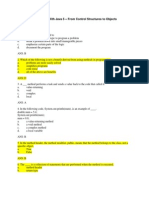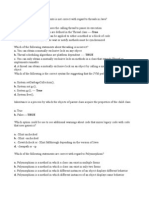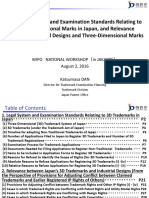0% found this document useful (0 votes)
144 views30 pagesUser Defined Method Mcqs
The document consists of a series of questions and answers related to user-defined methods in Java. It covers topics such as method declaration, return types, method overloading, access modifiers, and method parameters. Each question is followed by the correct answer, providing a comprehensive overview of Java methods.
Uploaded by
vpinku35Copyright
© © All Rights Reserved
We take content rights seriously. If you suspect this is your content, claim it here.
Available Formats
Download as PDF, TXT or read online on Scribd
0% found this document useful (0 votes)
144 views30 pagesUser Defined Method Mcqs
The document consists of a series of questions and answers related to user-defined methods in Java. It covers topics such as method declaration, return types, method overloading, access modifiers, and method parameters. Each question is followed by the correct answer, providing a comprehensive overview of Java methods.
Uploaded by
vpinku35Copyright
© © All Rights Reserved
We take content rights seriously. If you suspect this is your content, claim it here.
Available Formats
Download as PDF, TXT or read online on Scribd
/ 30






















































































